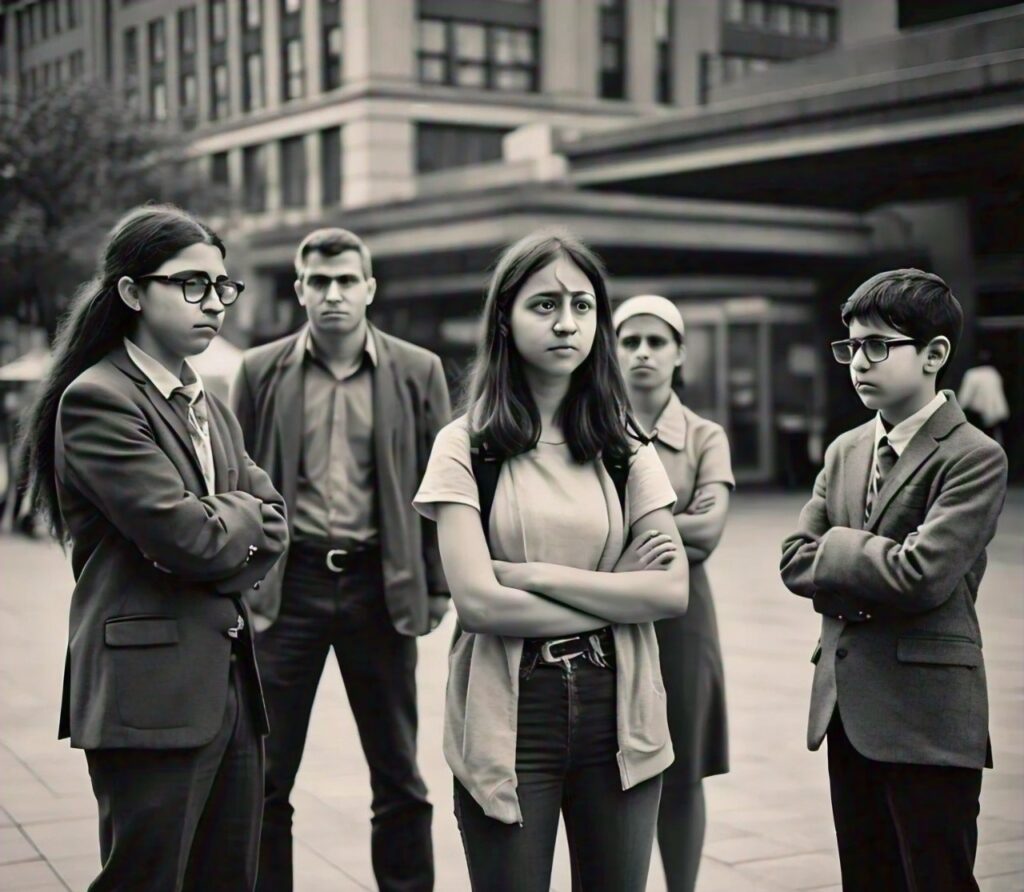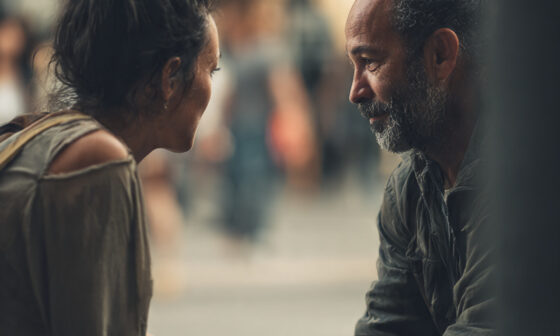Prejudice and discrimination are beliefs and the resulting actions that cause people to be treated differently. Many people today are actively fighting discrimination and prejudice in all its forms. If you’re not one of those people, it’s time to get involved.
What Is Prejudice?
Prejudice is derived from the word “to judge before.” It refers to the ability to form an opinion or impression regarding a person or group of people without complete investigation. In theory, it’s possible for someone to be prejudiced without anyone else being aware of it.
For instance, one might have many preconceived notions about someone that is Christian, Muslim, or Jewish and allow these judgments to impact how they perceive and treat these individuals. This is also true for those that are Black, White, or Asian. It is a naive behavior and mental attitude that does no good for anyone involved.
What is Discrimination?
Discrimination is the act of making a distinction against a person or object based on the class or group they are part of rather than deciding on an individual’s merit.
Discrimination can be expressed through verbal slurs, the failure to provide reasonable accommodations, access, or hate crimes. Groups, individuals, or institutions can perpetrate discrimination.

Differences Between Prejudice and Discrimination
A prejudiced person may not act on their beliefs. So, a person can be prejudiced towards a particular category of people yet not discriminate against them.
Furthermore, prejudice comprises the three elements that make up an attitude (affective, behavioral, and cognitive), while discrimination only requires behaviors.
A fundamental distinction between discrimination and prejudice is that:
- Prejudice has to do with attitude.
- Discrimination has to take place in the course of action.
Types of Prejudice and Discrimination include, but are not limited to:
A prejudiced view is based on various aspects, such as sex, race, age, sexual orientation, the person’s nationality, socioeconomic status, and religion. The most popular types of prejudices include:
- Sexism is a situation where an individual is discriminated against due to their sexuality or gender, or even their perceived gender.
- Ableism occurs when people are poorly treated because of a disability they are living with.
- Racism/Xenophobia is when a person is discriminated against due to their ethnicity, color, or nationality.
- Homophobia is when people are treated with prejudice due to their sexual orientation.
- Transphobia can be defined as the irrational fear or hostility towards people who say they are Transgender, non-binary, or genderqueer, including bigender, pangender, genderfluid, two-spirit, gender non-conforming, and those who say they don’t fit into male/female binaries.
- Body shaming occurs when an individual is shamed because of their body.
- Classism is a situation where someone is discriminated against because of their social status or the amount they make.
- Harassment is when someone uses inappropriate insults, jokes or pictures, or names directed at an individual. This could be based on factors like race, gender or nationality, ethnicity, gender, socioeconomic status, gender, religious beliefs, sexuality, or age; instead of the individual’s personal experience.
- Unfair treatment It is possible that you have received an entirely different quality of service due to your membership in a particular group compared to another member of a different group.
- Ageism is when a person is treated badly due to their age
- Religious prejudice
Keep in mind that prejudice is not an identical concept to discrimination. In contrast, while prejudice is a term used to describe beliefs and attitudes in the sense of abstract, discrimination describes actions that result from prejudice.
Conformity as an Explanation of Prejudice and Discrimination
People are influenced to become racist or homophobic. For instance, these influences can come from their parents, friends, and group members.
Social norms – the behavior that is considered acceptable within a particular social group can have an impact on discrimination and prejudice.
People might have preconceived beliefs or feelings and behave with prejudice due to what is considered normal for the social group that they belong to:
Based on the work of psychologist Gordon Allport, stereotypes and prejudices arise because of our normal human thoughts. To understand the meaning of the world around us, it’s essential to separate information into mental categories.
“The human mind must think with the aid of categories,” Allport explained in his book The Nature of Prejudice. “Once formed, categories are the basis for normal prejudgment. We cannot possibly avoid this process. Orderly living depends upon it.”
In the same way, we frequently depend on our ability to classify ideas, people, and objects into distinct categories to make our world easier to comprehend.
We’re simply bombarded with too much information, and it is challenging to filter it all systematically, logically, and rationally. This rapid categorization can lead to false assumptions that can have a negative effect on people as well as the entire world.
How Prejudice Negatively Affects All Parties
If someone has prejudicial views towards others, they tend to see anyone who belongs to the same group as “all the same.” They paint everyone with a certain set of traits or beliefs using a broad brush but don’t take the time to look at every person as an individual.
This can have a significant influence on the way people interact and behave with others who are different from them.
On a fundamental level, it may impede an individual’s ability to gain knowledge about people who differ from them. In turn, it can result in them missing out on conversations or relationships, which could be extremely satisfying.
Those on the receiving end of prejudice are particularly impacted; however, these assumptions and prejudices cause pain but could also hinder their ability to have a fair shot in this world.
For instance, the general stigma toward Black people has increased incarceration rates, fewer jobs, and lower wages.
Another example of blatant disrespect is the hatred towards Muslims, and the rampant anti-Muslim sentiments in the West have influenced many to think all Muslims are violent and hateful.
The negative consequences of discriminatory thoughts or actions could be detrimental to both the individual as well as the entire community.
If you’ve been the victim of discrimination or prejudiced thought, or you’ve been unfairly treated, it is not your fault.
For an individual, the experience of discrimination and harassment can directly impact your emotions, feelings of worth, or value and hinder your belief that you are who you truly are. Keep in mind that you are entitled to the right to equal treatment.
As a society, if discrimination or prejudice is in place, we create an environment in which harm is experienced and caused to others. This directly opposes our desire to have an inclusive and safe community and our Code of Conduct.
The tendency to judge others can be a problem within a group of people if individuals do not regularly review and question their beliefs and opinions towards other people and when discrimination in the workplace isn’t contestable.
However, acceptance and inclusion are also ways to grow in the community. Through respectfully asking questions, listening, and learning, we can create an inclusive space that promotes inclusion, diversity, and acceptance.
Read More: How Cognitive Biases Influence How You Think And Act
Read More: Cognitive Dissonance And Ways To Resolve It
Read More: Deductive and Inductive Reasoning
Fighting Against Prejudice and Discrimination
Apart from examining the causes of prejudice, research has also examined various ways to eliminate or reduce prejudice. For instance, empowering yourself with the necessary skills to be more compassionate to people from different groups is a method that has had a lot of success.
Imagining yourself wearing similar shoes as the other person will make them more real to you. At that point, you can see that they’re not just an unimportant part of a community distinct from your own.
See them as someone who has a father and mother or a sibling, someone who is a friend to other people or a colleague, or a romantic partner, someone who has unique interests and the capacity to cry, love, and feel.
Be aware of our behaviors and attitudes
The reason for prejudice is inexperience and lack of experience, and the stigmatization of stereotypes often accompanies it; we must address this.
In some instances, prejudice can be obvious; it is often the case that it happens without our conscious awareness. It doesn’t matter if it’s deeply ingrained or taught or an implicit bias; it’s essential to confront the prejudices against other people.
One of the most effective methods to overcome this is to recognize and accept that it happens. Being conscious of your biases, which we all experience regardless of whether we’re aware or not, will make it easier to spot yourself in the act and self-correct.
Recognizing and Correcting Your Prejudices
If you feel that you have prejudiced another person, you can ask yourself these questions:
- What is the reason I have this idea?
- What evidence do I have that my opinion on this particular person or group is right?
- What do I know about this person or group?
- Could it be possible that I am biased?
Other methods employed to lessen prejudice are:
- It is a thought to consider that other people may be biased towards you and think about the feeling of being judged based on the smallest things like your skin color and religion, sex, or even your age.
- Learning about other cultures and understanding common stereotypes about them.
- Spend time with other members of groups.
- Engaging in open discussions about the human nature of people to practice prejudice
- Promoting legislation and regulations that ensure fair and equal treatment of every group of people
- Consider the language you speak. It may be sexist, racist, homophobic, transphobic, ableist, etc. Words can be a source of hurt to people who have been subjected to discrimination and prejudice. If you aren’t sure or commit a mistake, apologize, reflect, and make a conscious effort to improve when you get another chance.
- Learn from those who might differ from you. Move outside of your comfort zone and get to meet them, hear their stories, and learn about their motivations. Be sure to treat them respectfully and be aware of your limits. It’s not all things are open for discussion or sharing.
- Don’t be inhuman to others’ experiences. They might differ from yours. However, they are equally valuable.
- Be aware of the political climate.
- Discover the story of the people and the land you reside, study, or travel to.
Get help
Make sure you consider the safety of everyone. Assistance from security personnel or the staff could be the best solution.
You CAN act. There are many ways to respond. If you can do so, you can ask the person experiencing the problem to confirm that they are okay or contact them following the incident and let them know that you disagree with the incident.
Call out the behavior!
If someone displays discriminatory behavior or attitudes, let them know their behavior is unacceptable. Ask them to reconsider their language or what they’ve stated.
Conclusion
Understanding what causes prejudice and why it can be prevalent is a crucial step to helping the world become an inclusive, equal, and welcoming space. There are many improvements to be made, certainly.
Be sure to continue having meaningful conversations, be aware of your biases, and try to get to know people more deeply.





